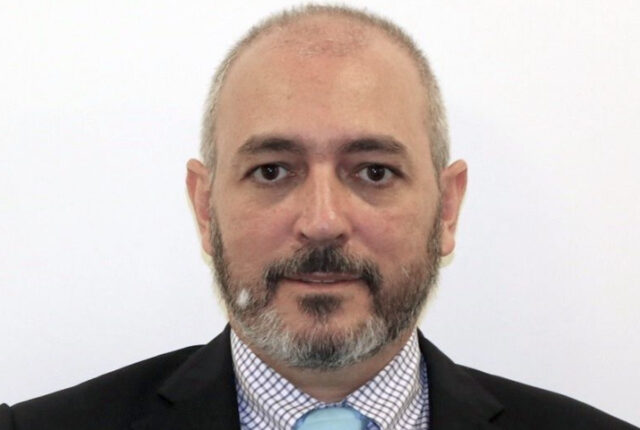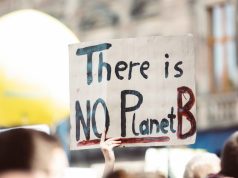| By Elena Johansson
Marcos Neto, director finance sector hub at United Nations Development Programme (UNDP), talks to investESG.euabout the progress made on a sustainable recovery from the pandemic and explains how digital investments can support sustainable development.
Q: G20 finance ministers agreed in April 2020 to “commit to support an environmentally sustainable and inclusive recovery”. Do you think that current efforts will accelerate a sustainable and inclusive recovery? Where do you see positive developments and where do you see gaps?
A: Covid has really changed [things]. The latest Intergovernmental Panel on Climate Change (IPCC) report on climate change is also drawing people’s attention [to the fact] that things have to change.
For the first time ever, in the [G20] July communiqué, carbon pricing was [recognised as a potential tool].
And second, it’s great that the International Monetary Fund (IMF) has approved $650 billion [of Special Drawing Rights (SDRs) allocation]; it is great that this is going on. But honestly, the 69 low-income nations only get 3.2% of the total allocation of SDRs. Thus, the conversation of reallocating SDRs on a voluntary basis becomes very important.
I think you have got enough evidence that things are starting to move in the right direction, but they are not moving fast enough.
If you look at the private side of [investments], there you have two sides of the same coin.
We’ve seen the growth of green bonds. We’ve seen a massive growth of social bonds in the last 18 months. But I think we are also coming to the realisation that a lot of what is called ESG is not going to have an impact on social and environmental [issues].
We have to [devise new] regulation. What qualifies as ESG needs to truly change: to social, environmental and governance impact [investments].
If you are going to transform the economy into a decarbonised economy, [investors] have to adapt the entire portfolio [strategy accordingly].
Q: Digitalisation can support sustainable development, especially in emerging markets through for example fintech and microfinance. But it can also lead to wider unemployment as a result of for example artificial intelligence. What is key in your opinion to make sure that the current digitalisation trend will become sustainable and serve both the people and the planet?
A: You need to look at digitalisation in different ways. It is an instrument to make transactions more effective and efficient.
We’ve also seen that when you are starting to move to digital services and transactions in developing countries, this can be very good from a financial inclusion point of view.
Now, on the job side of things, yes, there is a risk.
I think the biggest challenge that we have now, especially with Covid, is in fact time. In the past, we had long periods of time during which new technology spread in societies. Today, the speed [of change] is just mind-boggling. And that’s why a combination of rescaling social protection and government interventions [is needed].
Now, the third element is the big fintechs, the Facebooks, the Googles — the power that they have and the need for governance of that power. African countries don’t have this power.
And if the Libra [currency] were to become a reality, it would affect any country in the world, not just the United States. How do you create a mechanism by which emerging economies are actually [sitting at the same] table and talk about this whole digital transition?
We wrote a series of papers about how to get [the big fintechs] to consider the impact that they are having [on the sustainable development goals (SDGs)], positive and negative.
Q: What can institutional investors do as part of the recovery from the pandemic in order to support a truly sustainable approach with their digital investments? Can your newly developed SDG Impact Standards or other tools help institutional investors to make their digital investments sustainable for the people and the planet? Can you give an example?
A: The reason why I’ve put those standards in place is to bring some more rigour to the decision-making process for a company.
[Investors] need to demand integrity. They need to demand the impact, the result that they want from investing sustainably.
If I invest in Nigeria, in something that you are telling me is linked to climate, can you connect it to the Nationally Determined Contribution (NDC) of Nigeria; can you show me that that investment is going to contribute to the overarching reduction of carbon emissions or increase the resilience of Nigeria’s economy?
We need to bring the public policy side to the investment side. Our product does not tell you in which company [you should] invest. Our product tells you that these sectors and sub-sectors of the Nigerian economy have those opportunities, and if you invest in those opportunities, you should be contributing to SDG 1, 2, 3, 4, 5.
I’m telling you that the area of cold storage infrastructure in the central [region] of Brazil has a huge potential to generate you a great return, on which SDGs it delivers and [that it] is a priority in the SDG plans of the government.
But the tool does not replace the need to do a due diligence check and to demand integrity for the last mile of that investment [decision].
To go back to what I said before, investors need to internalise the integrity [of sustainable investments in decision making], and [require] what they want. They need to demand tighter definitions and tighter metrics for ESG.
| investESG.eu is an independent and neutral platform dedicated to generating debate around ESG investing topics. All opinions expressed are those of the author or contributing source.








